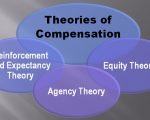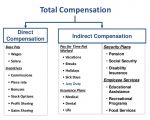
Goals of Compensation Management
Compensation management is aimed at helping the organization achieve strategic success while ensuring internal and external equity. The goals of an effective compensation management, ...

The Compensation Management
Steps in Setting Pay / Compensation
Organizations establish pay rates taking into account all above-mentioned issues and follow five steps :
1) Conduct a pay survey of what other employees ...

Criteria of a Successful Compensation Policy
Compensation management creates a system of rewards that is equitable to the employer and employee alike. Patton (1977) suggests that in compensation policy, seven criteria should present ...

Determinants of Compensation Structure
There are many factors for compensation determination are:
1) Worth of the job: The relative influence of the size, responsibility, skill requirements and objectionableness of duties ...

The Definition of compensation
Pay is the money paid to somebody for regular work (Oxford Dictionary, 1999: 857). Wage and salary also denote ‘the payment received for performing work (French, 1997:364) One ...

Compensation and benefits components
There can be several ways where benefits can be given to employees. Mostly it is given in terms of a CTC or gross salary. Some of the various components of compensation and benefits ...

Elements of Compensation
Compensation includes two things:
1) Direct financial compensations which is typically made in cashable form that reflect direct work related compensation such as base pay, wages and ...

Camouflage Compensation
Compensation that is granted to upper echelon employees, directors, consultants and related parties that is not fully disclosed in mandatory company filings. In some cases of camouflage ...

Stock Compensation
Stock compensation is a way corporations use stock options to reward employees. Stock compensation can be very profitable for the employee if the stock prices increases. New companies ...

Direct Employee compensation
Direct compensation refers to monetary benefits offered and provided to employees in return of the services they provide to the organization. The monetary benefits include basic salary, ...
